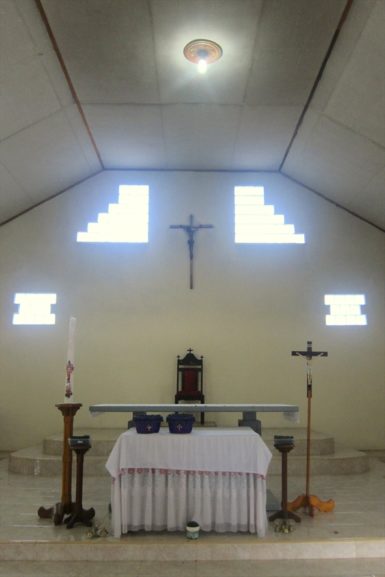
Religious leaders should be more involved in creating an inclusive and pluralistic Indonesia and “leave the ‘comfort zone’” of their community, Catholic bishops were told at a conference this week.
What the world’s most populous Muslim-majority nation needs from its religious leaders now “is greater commitment to get involved more intensively since our social conditions are not as peaceful as commonly perceived and expected”, Allisa Wahid of the GusDurian interfaith group told the conference, as AsiaNews reports.
The youngest daughter of the former president and advocate of interfaith dialogue in Indonesia, the late Abdurrahman ‘Gus Dur’ Wahid, warned against “religious exclusivism”, especially ahead of the 2018 regional elections and 2019 presidential elections in Indonesia.
Fr. Felix Supranto, who has been involved in interfaith meetings in Islamic schools, suggested that the inward-looking attitude of the Catholic community might have contributed to growing radicalism in Indonesia.
He called Catholics “to leave the ‘comfort zone’ of one’s community” to meet “the other” and “generate a sense of mutual respect and brotherhood”. In this way non-Catholic communities will recognise their “distorted views” and will be able to adjust their negative perceptions, the priest said.
Countering extremism
These comments came during the week that a “milestone” ruling by Indonesia’s High Court decreed that all religious groups should be treated equally before the law, and that failing to do so would be “unconstitutional”.
Indonesia, long celebrated for its religious tolerance, has seen an increase in radicalisation among Muslim youth, which was highlighted during the blasphemy trial of Jakarta’s former governor, Basuki Tjahaja Purnama (better known as “Ahok”), a Christian and ethnic Chinese, earlier this year.
He was charged with blasphemy in September 2016 after accusing his political opponents of using Qur’anic verses to stop Muslims from voting for him in his bid for re-election. Extremist Islamic movements used his trial to organise mass protest marches.
After Ahok was jailed for two years, the UN called on the Indonesian government to repeal its blasphemy laws, which, the UN said, “undermined” religious freedom.
A report into religious freedom in Indonesia, published in August, found that religious minorities were fearful that their country’s reputation as a “tolerant Muslim-majority nation” was being undermined by radical Islam’s growing influence on politics and society.
There have also been ongoing concerns about a number of churches being closed in Indonesia.